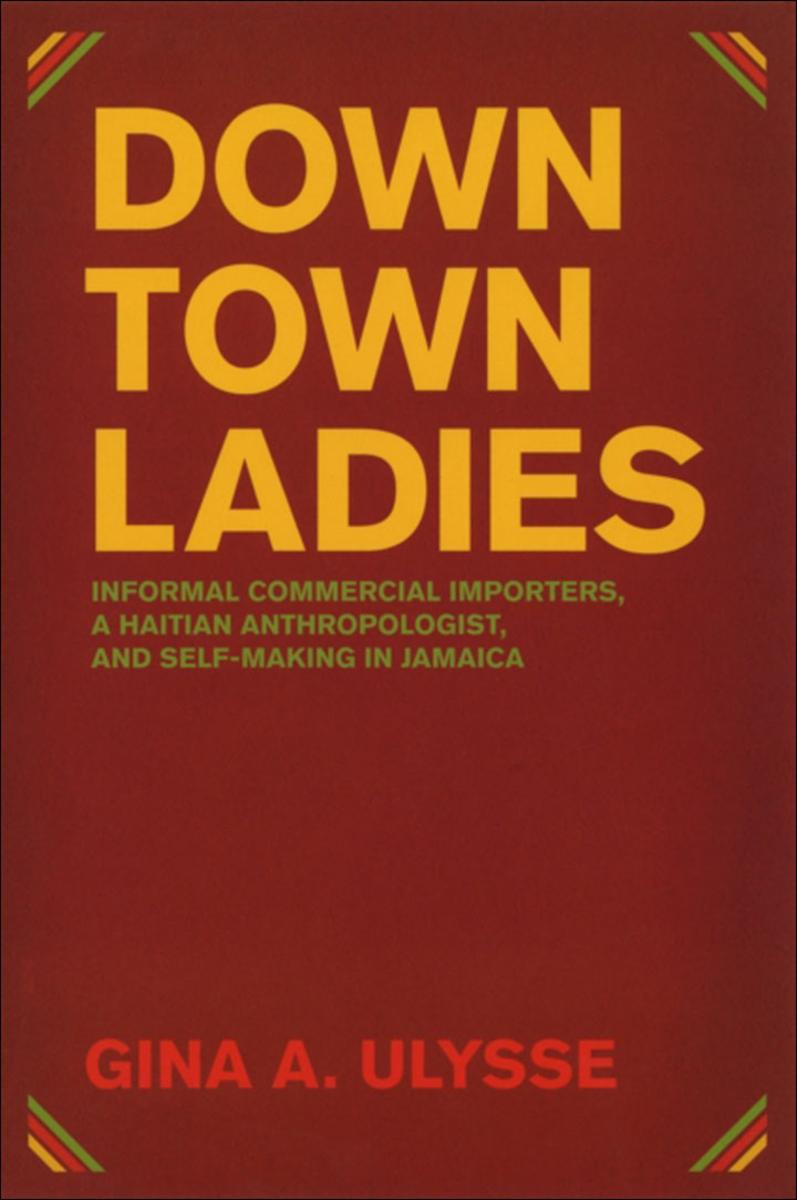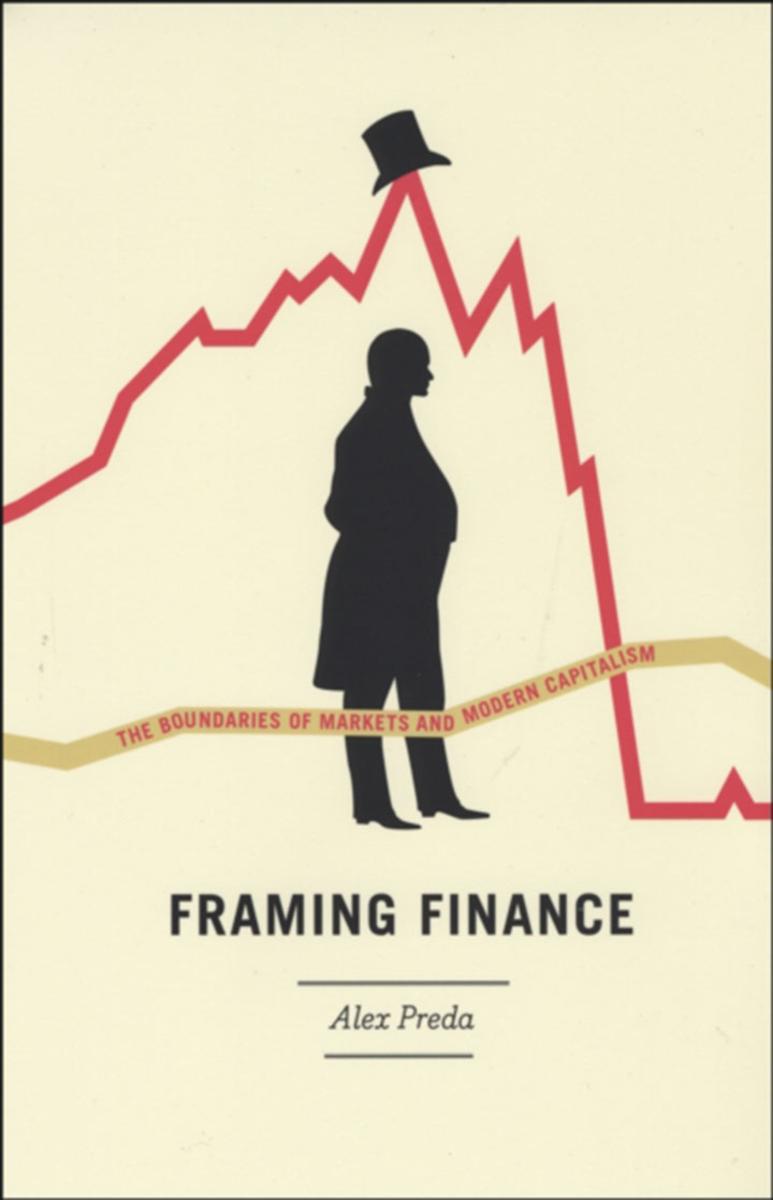
Church Mother
¥253.10
Imbued with character and independence, strength and articulateness, humor and conviction, abundant biblical knowledge and intense compassion, Katharina Schutz Zell (1498-1562) was an outspoken religious reformer in sixteenth-century Germany who campaigned for the right of clergy to marry and the responsibility of lay people-women as well as men-to proclaim the Gospel. As one of the first and most daring models of the pastor's wife in the Protestant Reformation, Schutz Zell demonstrated that she could be an equal partner in marriage; she was for many years a respected, if unofficial, mother of the established church of Strasbourg in an age when ecclesiastical leadership was dominated by men.Though a commoner, Schtz Zell participated actively in public life and wrote prolifically, including letters of consolation, devotional writings, biblical meditations, catechetical instructions, a sermon, and lengthy polemical exchanges with male theologians. The complete translations of her extant publications, except for her longest, are collected here in Church Mother, offering modern readers a rare opportunity to understand the important work of women in the formation of the early Protestant church.

Moralizing Technology
¥253.10
Technology permeates nearly every aspect of our daily lives. Cars enable us to travel long distances, mobile phones help us to communicate, and medical devices make it possible to detect and cure diseases. But these aids to existence are not simply neutral instruments: they give shape to what we do and how we experience the world. And because technology plays such an active role in shaping our daily actions and decisions, it is crucial, Peter-Paul Verbeek argues, that we consider the moral dimension of technology.?Moralizing Technology offers exactly that: an in-depth study of the ethical dilemmas and moral issues surrounding the interaction of humans and technology. Drawing from Heidegger and Foucault, as well as from philosophers of technology such as Don Ihde and Bruno Latour, Peter-Paul Verbeek locates morality not just in the human users of technology but in the interaction between us and our machines. Verbeek cites concrete examples, including some from his own life, and compellingly argues for the morality of things. Rich and multifaceted, and sure to be controversial, Moralizing Technology will force us all to consider the virtue of new inventions and to rethink the rightness of the products we use every day.

Divas in the Convent
¥253.10
When eight-year-old Lucrezia Orsina Vizzana (1590-1662) entered one of the preeminent convents in Bologna in 1598, she had no idea what cloistered life had in store for her. Thanks to clandestine instruction from a local maestro di cappella-and despite the church hierarchy's vehement opposition to all convent music-Vizzana became the star of the convent, composing works so thoroughly modern and expressive that a recent critic described them as "e;historical treasures."e; But at the very moment when Vizzana's works appeared in 1623-she would be the only Bolognese nun ever to publish her music-extraordinary troubles beset her and her fellow nuns, as episcopal authorities arrived to investigate anonymous allegations of sisterly improprieties with male members of their order.?Craig A. Monson retells the story of Vizzana and the nuns of Santa Cristina to elucidate the role that music played in the lives of these cloistered women. Gifted singers, instrumentalists, and composers, these nuns used music not only to forge links with the community beyond convent walls, but also to challenge and circumvent ecclesiastical authority. Monson explains how the sisters of Santa Cristina-refusing to accept what the church hierarchy called God's will and what the nuns perceived as a besmirching of their honor-fought back with words and music, and when these proved futile, with bricks, roof tiles, and stones. These women defied one Bolognese archbishop after another, cardinals in Rome, and even the pope himself, until threats of excommunication and abandonment by their families brought them to their knees twenty-five years later. By then, Santa Cristina's imaginative but frail composer literally had been driven mad by the conflict.?Monson's fascinating narrative relies heavily on the words of its various protagonists, on both sides of the cloister wall, who emerge vividly as imaginative, independent-minded, and not always sympathetic figures. In restoring the musically gifted Lucrezia Orsina Vizzana to history, Monson introduces readers to the full range of captivating characters who played their parts in seventeenth-century convent life.?

Children of the Greek Civil War
¥253.10
At the height of the Greek Civil War in 1948, thirty-eight thousand children were evacuated from their homes in the mountains of northern Greece. The Greek Communist Party relocated half of them to orphanages in Eastern Europe, while their adversaries in the national government placed the rest in children's homes elsewhere in Greece. A point of contention during the Cold War, this controversial episode continues to fuel tensions between Greeks and Macedonians and within Greek society itself. Loring M. Danforth and Riki Van Boeschoten present here for the first time a comprehensive study of the two evacuation programs and the lives of the children they forever transformed.Marshalling archival records, oral histories, and ethnographic fieldwork, the authors analyze the evacuation process, the political conflict surrounding it, the children's upbringing, and their fates as adults cut off from their parents and their homeland. They also give voice to seven refugee children who poignantly recount their childhood experiences and heroic efforts to construct new lives in diaspora communities throughout the world. A much-needed corrective to previous historical accounts, Children of the Greek Civil War is also a searching examination of the enduring effects of displacement on the lives of refugee children.

Law and Happiness
¥253.10
Economists who make normative proposals traditionally assume that policy should advance “efficiency,”usually in the Kaldor or Hicks sense, which defines efficiency in terms of whether the project's winners can hypothetically compensate the project's losers.A compensation criterion is used because it can be based on ordinal utilities, which puts a smaller information burden on the decision maker than cardinal utilities do.Ordinal utilities, unlike cardinal utilities, can (in principle) be inferred from observations of consumer behavior.By seeing how people trade off goods, willingness-to-pay (or willingness-to-accept) amounts can be derived and summed, so that alternative policy outcomes can be easily compared.

Exemplary Tales of Love and Tales of Disillusion
¥253.10
At the height of Mara de Zayas's popularity in the mid-eighteenth century, the number of editions in print of her work was exceeded only by the novels of Cervantes. But by the end of the nineteenth century, Zayas had been excluded from the Spanish literary canon because of her gender and the sociopolitical changes that swept Spain and Europe. Exemplary Tales of Love and Tales of Disillusion gathers a representative sample of seven stories, which features Zayas's signature topics-gender equality and domestic violence-written in an impassioned tone overlaid with conservative Counter-Reformation ideology. This edition updates the scholarship since the most recent English translations, with a new introduction to Zayas's entire body of stories, and restores Zayas's author's note and prologue, omitted from previous English-language editions. Tracing her slow but steady progress from notions of ideal love to love's treachery, Exemplary Tales of Love and Tales of Disillusion will restore Zayas to her rightful place in modern letters.

Downtown Ladies
¥253.10
The Caribbean "e;market woman"e; is ingrained in the popular imagination as the archetype of black womanhood in countries throughout the region. Challenging this stereotype and other outdated images of black women, Downtown Ladies offers a more complex picture by documenting the history of independent international traders-known as informal commercial importers, or ICIs-who travel abroad to import and export a vast array of consumer goods sold in the public markets of Kingston, Jamaica.Both by-products of and participants in globalization, ICIs operate on multiple levels and, since their emergence in the 1970s, have made significant contributions to the regional, national, and global economies. Gina Ulysse carefully explores how ICIs, determined to be self-employed, struggle with government regulation and other social tensions to negotiate their autonomy. Informing this story of self-fashioning with reflections on her own experience as a young Haitian anthropologist, Ulysse combines the study of political economy with the study of individual and collective identity to reveal the uneven consequences of disrupting traditional class, color, and gender codes in individual societies and around the world.

Law in Everyday Japan
¥253.10
Lawsuits are rare events in most people's lives. High-stakes cases are even less commonplace. Why is it, then, that scholarship about the Japanese legal system has focused almost exclusively on epic court battles, large-scale social issues, and corporate governanceMark D. West's Law in Everyday Japan fills a void in our understanding of the relationship between law and social life in Japan by shifting the focus to cases more representative of everyday Japanese life.Compiling case studies based on seven fascinating themes-karaoke-based noise complaints, sumo wrestling, love hotels, post-Kobe earthquake condominium reconstruction, lost-and-found outcomes, working hours, and debt-induced suicide-Law in Everyday Japan offers a vibrant portrait of the way law intermingles with social norms, historically ingrained ideas, and cultural mores in Japan. Each example is informed by extensive fieldwork. West interviews all of the participants-from judges and lawyers to defendants, plaintiffs, and their families-to uncover an everyday Japan where law matters, albeit in very surprising ways.

Framing Finance
¥253.10
As the banking crisis and its effects on the world economy have made plain, the stock market is of colossal importance to our livelihoods. In Framing Finance, Alex Preda looks at the history of the market to figure out how we arrived at a point where investing is not only commonplace, but critical, as market fluctuations threaten our plans to send our children to college or retire comfortably. As Preda discovers through extensive research, the public was once much more skeptical. For investing to become accepted, a deep-seated prejudice against speculation had to be overcome, and Preda reveals that over the course of the eighteenth and nineteenth centuries groups associated with stock exchanges in New York, London, and Paris managed to redefine finance as a scientific pursuit grounded in observational technology. But Preda also notes that as the financial data in which they trafficked became ever more difficult to understand, charismatic speculators emerged whose manipulations of the market undermined the benefits of widespread investment. And so, Framing Finance ends with an eye on the future, proposing a system of public financial education to counter the irrational elements that still animate the appeal of finance.

Bargaining for Brooklyn
¥253.10
When middle-class residents fled American cities in the 1960s and 1970s, government services and investment capital left too. Countless urban neighborhoods thus entered phases of precipitous decline, prompting the creation of community-based organizations that sought to bring direly needed resources back to the inner city. Today there are tens of thousands of these CBOs-private nonprofit groups that work diligently within tight budgets to give assistance and opportunity to our most vulnerable citizens by providing services such as housing, child care, and legal aid.Through ethnographic fieldwork at eight CBOs in the Brooklyn neighborhoods of Williamsburg and Bushwick, Nicole P. Marwell discovered that the complex and contentious relationships these groups form with larger economic and political institutions outside the neighborhood have a huge and unexamined impact on the lives of the poor. Most studies of urban poverty focus on individuals or families, but Bargaining for Brooklyn widens the lens, examining the organizations whose actions and decisions collectively drive urban life.

Light Club
¥253.10
Paul Scheerbart (1863-1915) was a visionary German novelist, theorist, poet, and artist who made a lasting impression on such icons of modernism as Walter Benjamin, Bruno Taut, and Walter Gropius. Fascinated with the potential of glass architecture, Scheerbart's satirical fantasies envisioned an electrified future, a world composed entirely of crystalline, colored glass.In 1912, Scheerbart published The Light Club of Batavia, a Novelle about the formation of a club dedicated to building a spa for bathing-not in water, but in light-at the bottom of an abandoned mineshaft. Translated here into English for the first time, this rare story serves as a point of departure for Josiah McElheny, who, with an esteemed group of collaborators, offers a fascinating array of responses to this enigmatic work.The Light Club makes clear that the themes of utopian hope, desire, and madness in Scheerbart's tale represent a part of modernism's lost project: a world based on political and spiritual ideals rather than efficiency and logic. In his compelling introduction, McElheny describes Scheerbart's life as well as his own enchantment with the writer, and he explains the ways in which The Light Club of Batavia inspired him to produce art of uncommon breadth. The Light Club also features inspired writings from Gregg Bordowitz and Ulrike Mller, Andrea Geyer, and Branden W. Joseph, as well as translations of original texts by and about Scheerbart. A unique response by one visionary artist to another, The Light Club is an unforgettable examination of what it might mean to see radical potential in absolute illumination.

Essays in Ancient and Modern Historiography
¥253.10
Arnaldo Momigliano was one of the foremost classical historiographers of the twentieth century. This collection of twenty-one carefully selected essays is remarkable both in the depth of its scholarship and the breadth of its subjects. Moving with ease across the centuries, Momigliano supplements powerful readings of writers in the Greek, Jewish, and Roman traditions, such as Tacitus and Polybius, with writings that focus on later historians, such as Vico and Croce. Charmingly written and concise, these pieces range from review essays reprinted from the New York Review of Books to treatises on the nature of historical scholarship. Essays in Ancient and Modern Historiography is a brilliant reminder of Momigliano's profound knowledge of classical civilization and his gift for deftly handling prose.With a new Foreword by Anthony Grafton, this volume is essential reading for any student of classics or historiography.

Tragic Sense of Life
¥253.10
Prior to the First World War, more people learned of evolutionary theory from the voluminous writings of Charles Darwin's foremost champion in Germany, Ernst Haeckel (1834-1919), than from any other source, including the writings of Darwin himself. But, with detractors ranging from paleontologist Stephen Jay Gould to modern-day creationists and advocates of intelligent design, Haeckel is better known as a divisive figure than as a pioneering biologist. Robert J. Richards's intellectual biography rehabilitates Haeckel, providing the most accurate measure of his science and art yet written, as well as a moving account of Haeckel's eventful life.

Natural Origins of Economics
¥253.10
References to the economy are ubiquitous in modern life, and virtually every facet of human activity has capitulated to market mechanisms. In the early modern period, however, there was no common perception of the economy, and discourses on money, trade, and commerce treated economic phenomena as properties of physical nature. Only in the early nineteenth century did economists begin to posit and identify the economy as a distinct object, divorcing it from natural processes and attaching it exclusively to human laws and agency.In The Natural Origins of Economics, Margaret Schabas traces the emergence and transformation of economics in the eighteenth and nineteenth centuries from a natural to a social science. Focusing on the works of several prominent economists-David Hume, Adam Smith, Thomas Malthus, David Ricardo, and John Stuart Mill-Schabas examines their conceptual debt to natural science and thus locates the evolution of economic ideas within the history of science. An ambitious study, The Natural Origins of Economics will be of interest to economists, historians, and philosophers alike.

Difficult Reputations
¥253.10
We take reputations for granted. Believing in the bad and the good natures of our notorious or illustrious forebears is part of our shared national heritage. Yet we are largely ignorant of how such reputations came to be, who was instrumental in creating them, and why. Even less have we considered how villains, just as much as heroes, have helped our society define its values.Presenting essays on America's most reviled traitor, its worst president, and its most controversial literary ingnue (Benedict Arnold, Warren G. Harding, and Lolita), among others, sociologist Gary Alan Fine analyzes negative, contested, and subcultural reputations. Difficult Reputations offers eight compelling historical case studies as well as a theoretical introduction situating the complex roles in culture and history that negative reputations play.Arguing the need for understanding real conditions that lead to proposed interpretations, as well as how reputations are given meaning over time, this book marks an important contribution to the sociologies of culture and knowledge.

What Is Education?
¥253.10
One day in 1938, John Dewey addressed a room of professional educators and urged them to take up the task of "e;finding out just what education is."e;?Reading this lecture in the late 1940s, Philip W. Jackson took Dewey's charge to heart and spent the next sixty years contemplating his words. The stimulating result of a lifetime of thinking about educating, What Is Educationis a profound philosophical exploration of how we transmit knowledge in human society and how we think about accomplishing that vital task.?Most contemporary approaches to education follow a strictly empirical track, aiming to discover pragmatic solutions for teachers and school administrators. Jackson argues that we need to learn not just how to improve on current practices but also how to think about what education means-in short, we need to answer Dewey by constantly rethinking education from the ground up. Guiding us through the many facets of Dewey's comments, Jackson also calls on Hegel, Kant, and Paul Tillich to shed light on how a society does, can, and should transmit truth and knowledge to successive generations. Teasing out the implications in these thinkers' works ultimately leads Jackson to the conclusion that education is at root a moral enterprise.?At a time when schools increasingly serve as a battleground for ideological contests, What Is Educationis a stirring call to refocus our minds on what is for Jackson the fundamental goal of education: making students as well as teachers-and therefore everyone-better people.

Empowering Science and Mathematics Education in Urban Schools
¥253.10
Math and science hold powerful places in contemporary society, setting the foundations for entry into some of the most robust and highest-paying industries. However, effective math and science education is not equally available to all students, with some of the poorest students-those who would benefit most-going egregiously underserved. This ongoing problem with education highlights one of the core causes of the widening class gap.?While this educational inequality can be attributed to a number of economic and political causes, in?Empowering Science and Mathematics Education in Urban Communities, Angela Calabrese?Barton?and Edna Tan demonstrate that it is augmented by a consistent failure to integrate student history, culture, and social needs into the core curriculum. They argue that teachers and schools should create hybrid third spaces-neither classroom nor home-in which underserved students can merge their personal worlds with those of math and science. A host of examples buttress this argument: schools where these spaces have been instituted now provide students not only an immediate motivation to engage the subjects most critical to their future livelihoods but also the broader math and science literacy necessary for robust societal engagement. A unique look at a frustratingly understudied subject,?Empowering Science and Mathematics Education?pushes beyond the idea of teaching for social justice and into larger questions of how and why students participate in math and science.?

Terror of Natural Right
¥253.10
Natural right-the idea that there is a collection of laws and rights based not on custom or belief but that are "e;natural"e; in origin-is typically associated with liberal politics and freedom. In The Terror of Natural Right, Dan Edelstein argues that the revolutionaries used the natural right concept of the "e;enemy of the human race"e;-an individual who has transgressed the laws of nature and must be executed without judicial formalities-to authorize three-quarters of the deaths during the Terror. Edelstein further contends that the Jacobins shared a political philosophy that he calls "e;natural republicanism,"e; which assumed that the natural state of society was a republic and that natural right provided its only acceptable laws. Ultimately, he proves that what we call the Terror was in fact only one facet of the republican theory that prevailed from Louis's trial until the fall of Robespierre.A highly original work of historical analysis, political theory, literary criticism, and intellectual history, The Terror of Natural Right challenges prevailing assumptions of the Terror to offer a new perspective on the Revolutionary period.

未来呼啸而来八部曲
¥253.00
【内容简介】 未来呼啸而来 作者彼得·戴曼迪斯和史蒂芬·科特勒全面展示了商业创业风口上的9大指数型技术——量子计算、人工智能、网络、机器人、虚拟现实与增强现实、3D打印、区块链、材料科学与纳米技术、生物技术,并洞察这9大指数型技术的互相融合会带来巨大的变革力量,将会完全重塑我们的生活方式与商业模式。两位作者结合9大指数型技术的融合,充分预测和描述了零售业、广告业、娱乐业、教育、医疗保健、长寿、商业、食品业等8大行业指数型变革的未来。 AI 3.0 本书源自米歇尔多年来对人工智能领域发展真实状态的记录,她在书中通过5个部分揭示了“现在的人工智能可以做什么,以及在未来几十年我们能从它们身上期待什么”。在描述了人工智能的发展历史之后,作者通过对视觉识别、游戏与推理、自然语言处理、常识判断这4大人工智能领域的热门应用的发展现状和局限性的探究,厘清了人工智能与人类智能的关系,书中关于人脸识别、无人驾驶、机器翻译等方面的案例分析都充满了巨大的启示! 人工智能的未来 库兹韦尔把“奇点”当作一个绝佳的“隐喻”:当智能机器的能力跨越这一临界点之后,人类的知识单元、链接数目、思考能力,将旋即步入令人眩晕的加速喷发状态——一切传统的和习以为常的认识、理念、常识,将统统不复存在,所欲的智能装置、新的人机复合体将进入“苏醒”状态。 库兹韦尔通过对人类思维本质的全新思考,大胆地预言了人工智能的未来。他坚信,未来人类一定会制造出可与人脑相媲美的“仿生大脑新皮质”。它们甚至比人脑更具可塑性,并可放置在云端,与遥远的人类生物大脑远程相连。 人工智能简史 约翰·马尔科夫在他的重磅新作《人工智能简史》一书里,从多个维度描绘了人工智能从爆发到遭遇寒冬再到野蛮生长的发展历程,直击了工业机器人、救援机器人、无人驾驶汽车、语音助手Siri等前沿领域,进而深入探讨了人工智能(AI)与智能增强(IA)的密切关系,而马尔科夫也会剖析“人与机器谁将拥有未来”这一机器时代的核心伦理问题。 如何创造可信的AI 作者盖瑞·马库斯是人工智能领域的专家,同时还是心理学和神经科学教授,在计算机科学、认知科学、语言学、人工智能等领域都练就了相当深厚的学术功底,并敢于挑战学术界的主流观点。盖瑞·马库斯和欧内斯特·戴维斯从深度学习算法固有的缺陷出发,阐述了当下 AI 技术发展的桎梏,对当前 AI 的场景应用和研究范式中的问题进行了分析,他指出AI真正的问题在于信任,常识才是深度理解的关键。 智能学习的未来 想要在这场人机大战中取胜,我们就必须换一种方式来思考智能。罗斯玛丽?卢金教授是国际AI教育学会主席,她在《智能学习的未来》中重新定义了人类智能,提出了交织型智能模型,详解了人类智能的7大要素,指明了如何在当下和未来进行智能的学习,使我们不至于因过时的“智能”而落后于时代。 与机器人共舞 约翰·马尔科夫在他的重磅新作《与机器人共舞》一书里,从多个维度描绘了人工智能从爆发到遭遇寒冬再到野蛮生长的发展历程,直击了工业机器人、救援机器人、无人驾驶汽车、语音助手Siri等前沿领域,进而深入探讨了人工智能(AI)与智能增强(IA)的终极关系,而马尔科夫也会剖析“人与机器谁将拥有未来”这一机器时代的核心伦理问题。 第四次革命 随着线上线下大融合以及人工智能的极大发展,人类已经进入超历史时代。在这一时代中,人类终于迎来了继哥白尼革命、达尔文革命、神经科学革命之后自我认知的第四次革命——图灵革命,整个世界正化身为一个信息圈,每个人都生活在云端,人类已不再是信息圈毋庸置疑的主宰。毫无疑问,图灵革命引爆了人工智能重塑整个人类社会的序曲! 【编辑推荐】 未来呼啸而来 《未来呼啸而来》给了我们一张寻宝图,一把开启下一个10年的钥匙。戴曼迪斯和科特勒为我们提供了一个充满希望的、强大的未来愿景。书中充满了令人惊叹的故事、令人惊叹的技术和所有非凡机遇的深刻教训。 一部让人热血沸腾酣畅淋漓的杰作!这本书描述的9大指数型技术和指数型技术融合颠覆的8大行业,会让你仿佛置身于科幻小说中的世界,清晰的感受那些即将在下一个10年实现的场景。未来到来的速度比你想象的还要快,千万别眨眼。 AI 3.0 《AI 3.0》是超级畅销书《复杂》的作者、复杂系统前沿科学家梅拉妮?米歇尔耗时10年思考,厘清人工智能与人类智能的全新力作。 《AI 3.0》全景式地展现了人工智能的过去、现在和未来。作者首先从人工智能的发展历程讲起,然后从视觉识别、游戏与推理、自然语言处理、常识判断等人工智能的4个主要应用领域来详细阐述人工智能的原理、当下的能力边界,及其正在面临的关键挑战。 人工智能的未来 美国国家技术奖获得者、奇点大学校长、谷歌公司工程总监雷?库兹韦尔力作。这是一部洞悉未来思维模式、全面解析“人工智能”创建原理的颠覆力作。库兹韦尔对于大脑和人工智能的理解,将对我们生活的方方面面、各行各业,以及我们有关未来的设想产生巨大的影响。库兹韦尔通过一系列推理告诉我们,我们有能力创造超越人类智能的非生物智能。 人工智能简史 《人工智能简史》是迄今为止非常完整又具可读性的人工智能史著作,为我们描绘了一幅机器人与人工智能趋势的宏大图景!人工智能究竟是天使,还是魔鬼?人工智能为何在经历“寒冬”之后在今日迸发出野蛮生长的态势?人工智能和智能增强终将走向何方?奇点来临时,人还会是自身命运的主宰者吗?本书将给你答案。 如何创造可信的AI 这是一本对当下人工智能大潮的反思之作。让人们了解到人工智能领域的真实状况,不受宣传报道的欺骗。与“人工智能霸主统治人类”的夸夸其谈不同,这本书既诊断出了当下人工智能领域的真实疾病,也开出了切实可行的治愈良方。 智能学习的未来 《智能学习的未来》的作者卢金教授是国际AI教育学会会长,教育领域的人工智能博士,研究人工智能与学习近30年,指出了未来的教育问题。《智能学习的未来》重新思考和定义了人类智能,并详解了人工智能与人类智能的关系,辨析了在终身学习时代,我们到底应该学什么。 与机器人共舞 人工智能时代的科技预言家、普利策奖得主、乔布斯极为推崇的记者约翰·马尔科夫重磅新作! 《与机器人共舞》是迄今为止完整、可读性的人工智能史著作,为我们描绘了一幅机器人与人工智能趋势的宏大图景!人工智能究竟是天使,还是魔鬼?人工智能为何在经历“寒冬”之后在今日迸发出野蛮生长的态势?人工智能和智能增强终将走向何方?奇点来临时,人还会是自身命运的主宰者吗?本书将给你答案。 第四次革命 继哥白尼革命、达尔文革命、神经科学革命之后,人类迎来的自我认知的第四次革命——图灵革命,人类进入超历史时代,并引爆人工智能的飞跃式发展。在人工智能急速发展的超历史时代,人们的自我认知、个人隐私、身份认同,甚至周围的政治环境都在发生变化。

Illustrators 54
¥252.65
This 54th edition of the Society of Illustrators Annual represents the very best work created throughout the year. These volumes have been collected and treasured for decades by those interested in the art of illustration, and are not only an invaluable source for art buyers, but also keep professional artists abreast of current trends and serve as inspirational teaching tools for art students and those entering the field.Highlights include: Revealing commentary by individual artists describing the creative process behind their works. Gold and Silver Medal winners in seven categories. Biographies of the artists elected to the prestigious Illustrators Hall of Fame, along with examples of their work. Profiles of the Hamilton King Award and the Richard Gangel Art Director Award winners.

The Big Sur Bakery Cookbook
¥252.65
Here from the celebrated California restaurant Big Sur Bakery is a stunningly photographed cookbook showcasing seasonal ingredients, local vintners, fishermen, and farmers—and the food that makes the Big Sur Bakery unique.Tucked behind a gas station off California's legendary Highway 1, the Big Sur Bakery is easy to miss. But don't be fooled by its unassuming location—stumbling across the Bakery, as countless visitors have done on their way up and down the Pacific Coast, will make you feel as if you've discovered a secret: a gem of a restaurant where the food, people, and atmosphere meld together in a perfect embodiment of the spirit of Big Sur.The three restaurant owners, chef Philip Wojtowicz, baker Michelle Wojtowicz, and host Michael Gilson, escaped the Los Angeles food scene to create their version of the ideal restaurant, nestled in the heart of some of the most beautiful country in the world. This is simple, wood-fired American cooking at its best, executed in a way that lets the ingredients—seasonal and often locally produced—shine. Weekend brunches feature thick, nine-grain pancakes and savory breakfast pizza topped with crisp bacon, fresh herbs, and pasture-raised eggs. At night, Phil offers classics like Grilled Prime Rib Steak with Red Wine Sauce along with twists on traditional favorites like Venison Osso Buco or Rockfish Scampi. And every meal should end with one of Michelle's great desserts, whether it's a homemade Peppermint Ice Cream Sundae or Hazelnut Flan with Roasted Cherries.But this is more than a cookbook; it's a yearlong glimpse into what it's really like to live in Big Sur, introducing the people and places that make the restaurant's renowned food possible, including Wayne Hyland, hunter and forager, Jamie Collins, organic row cropper, and Gary Pisoni, the eccentric vintner who supplies some of the restaurant's most beloved wine. With its outstanding photography, lively profiles, and dozens of must-make recipes, this book helps bring the experience of Big Sur home.




 购物车
购物车 个人中心
个人中心



